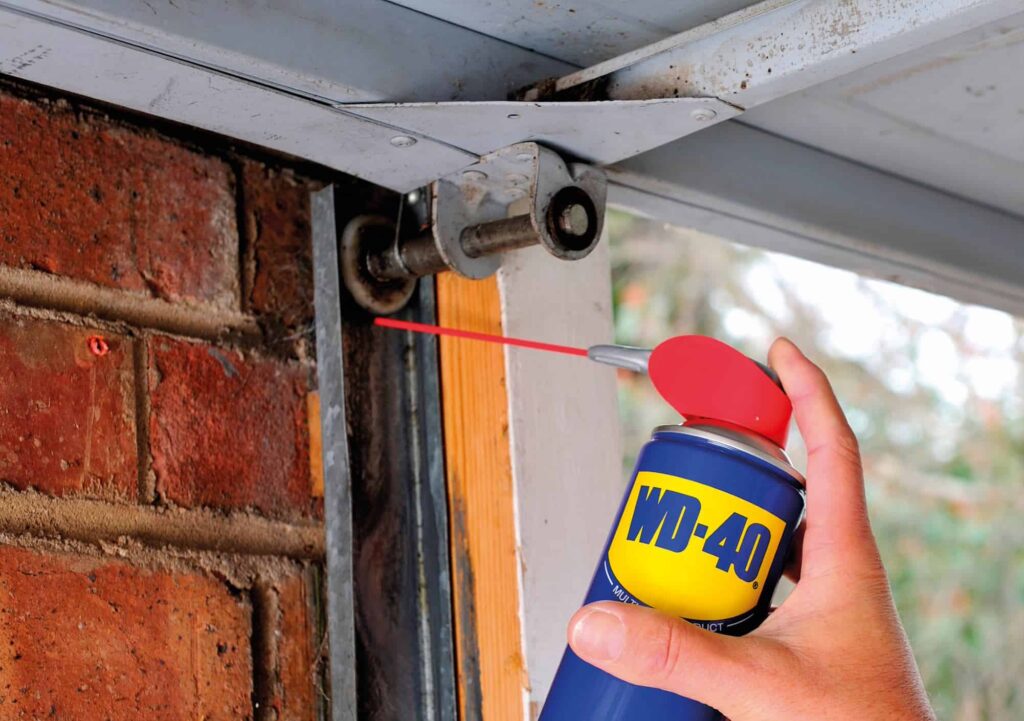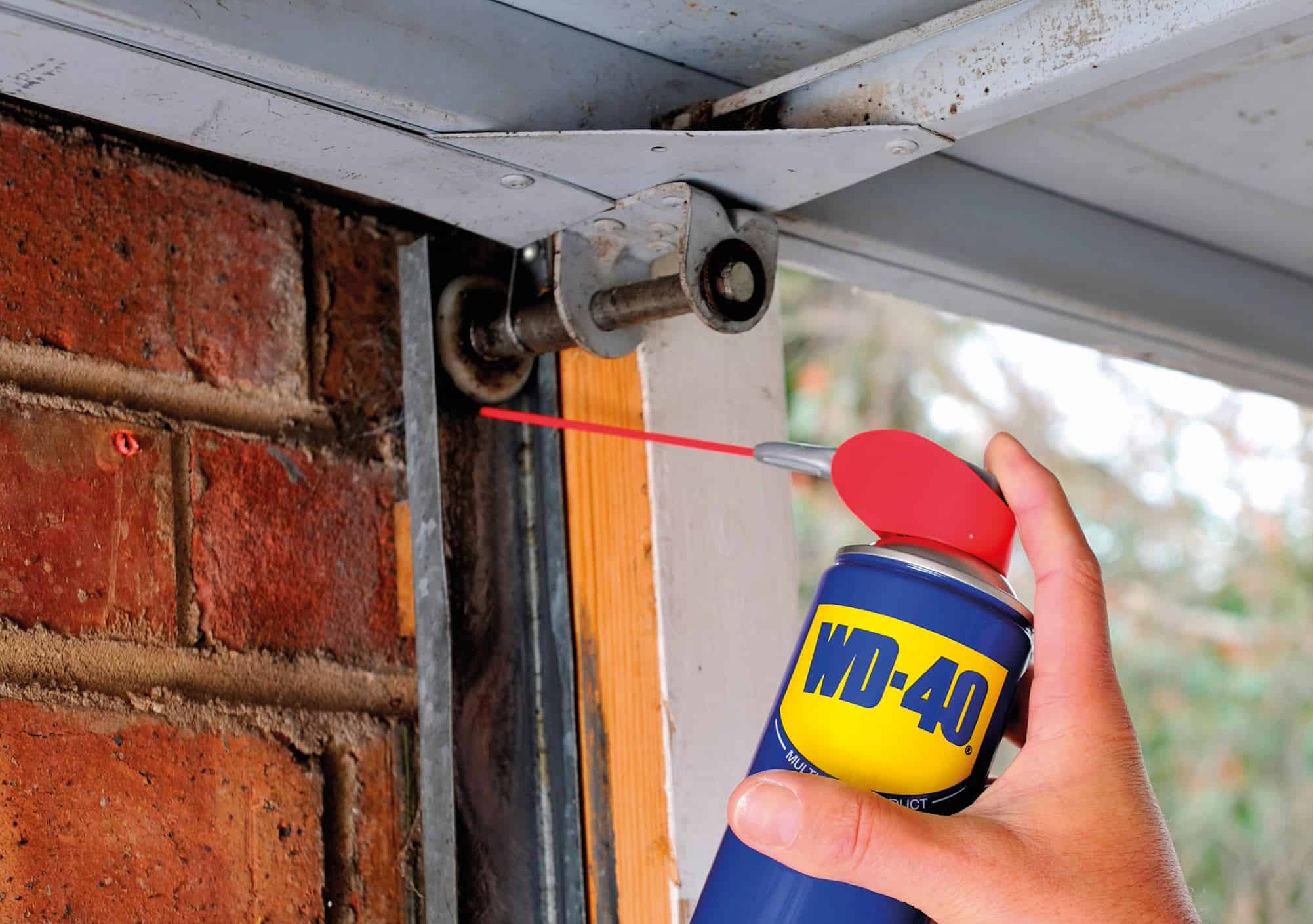
WD40 for Garage Door: Is It the Right Choice?
A squeaky garage door can be incredibly annoying. The persistent screeching and groaning every time you open or close it can drive you – and your neighbors – crazy. Naturally, the first thought for many homeowners is to reach for a can of WD40. But is WD40 for garage door maintenance actually the best solution? The answer, surprisingly, is often no. While WD40 has its uses, it might not be the ideal lubricant for your garage door’s complex mechanisms. This article delves into the pros and cons of using WD40 for garage doors, exploring better alternatives, and providing expert advice to keep your door running smoothly.
Understanding Garage Door Lubrication
Before diving into the specifics of WD40 for garage doors, it’s essential to understand the lubrication needs of these complex systems. Garage doors rely on a network of moving parts, including hinges, rollers, springs, and tracks. Proper lubrication reduces friction, prevents wear and tear, and ensures smooth and quiet operation.
Different components require different types of lubricants. For example, the garage door springs need a heavier lubricant, while the tracks and rollers might benefit from a lighter, more penetrating formula. Using the wrong lubricant can lead to premature wear, corrosion, and even system failure.
The Problem with WD40 on Garage Doors
WD40 for garage door maintenance is a common misconception. WD40 is primarily a solvent and water displacement product, not a long-lasting lubricant. While it can temporarily silence squeaks, it often dries out quickly, leaving behind a sticky residue that attracts dirt and grime. This residue can actually worsen the problem over time, leading to increased friction and potential damage.
- Short-Term Fix: WD40 provides only temporary relief from squeaks and noises.
- Attracts Dirt: The sticky residue attracts dust, dirt, and debris, creating a grinding paste.
- Dries Out Quickly: Unlike true lubricants, WD40 evaporates, leaving parts vulnerable to friction.
- Not a True Lubricant: WD40 is designed to displace water and loosen rust, not provide long-term lubrication.
Better Alternatives to WD40 for Garage Doors
Fortunately, several excellent alternatives to WD40 for garage door maintenance are available. These lubricants are specifically formulated to provide long-lasting protection and smooth operation.
Silicone-Based Lubricants
Silicone-based lubricants are a popular choice for garage doors. They are resistant to water, temperature changes, and dirt accumulation. They also provide excellent lubrication without leaving a sticky residue. Look for silicone sprays specifically designed for garage door use.
Lithium Grease
White lithium grease is another excellent option, particularly for hinges, rollers, and tracks. It’s a thicker lubricant that provides long-lasting protection against friction and wear. Apply it sparingly to avoid attracting excessive dirt.
Garage Door Specific Lubricants
Many manufacturers offer lubricants specifically designed for garage doors. These products are formulated to meet the unique needs of garage door systems and provide optimal performance. Read the product label carefully to ensure it’s suitable for your specific door type.
How to Properly Lubricate Your Garage Door
Proper lubrication is crucial for maintaining your garage door’s health and longevity. Here’s a step-by-step guide to lubricating your garage door:
- Safety First: Disconnect the garage door opener to prevent accidental operation.
- Clean the Parts: Use a brush or cloth to remove any dirt, dust, or debris from the parts you plan to lubricate.
- Apply Lubricant: Apply the lubricant sparingly to the hinges, rollers, tracks, springs, and other moving parts.
- Work the Door: Manually open and close the door several times to distribute the lubricant evenly.
- Wipe Excess: Wipe away any excess lubricant to prevent it from attracting dirt.
- Reconnect Opener: Reconnect the garage door opener and test the door’s operation.
Specific Areas to Lubricate
Knowing where to apply lubricant is as important as choosing the right product. Here are the key areas to focus on:
- Hinges: Lubricate the pivot points of the hinges to reduce friction and noise.
- Rollers: Apply lubricant to the rollers and their axles to ensure smooth movement along the tracks.
- Tracks: Lightly lubricate the tracks to reduce friction and prevent the rollers from binding.
- Springs: Lubricate the springs to prevent corrosion and maintain their flexibility. (Be careful when working with springs, as they are under high tension.)
- Lock: Use a graphite lubricant for the lock mechanism.
When to Call a Professional
While routine lubrication is a DIY task, certain garage door issues require professional attention. If you notice any of the following, it’s best to call a qualified technician:
- Broken Springs: Replacing garage door springs is a dangerous task that should only be performed by a trained professional.
- Damaged Cables: Frayed or broken cables can cause the door to malfunction and pose a safety hazard.
- Misaligned Tracks: Misaligned tracks can cause the door to bind and require adjustment by a professional.
- Opener Problems: If your garage door opener is malfunctioning, it’s best to have it inspected and repaired by a qualified technician.
Preventative Maintenance Tips
In addition to regular lubrication, several other preventative maintenance measures can help keep your garage door in top condition:
- Visual Inspections: Regularly inspect your garage door for signs of wear, damage, or corrosion.
- Tighten Hardware: Periodically tighten any loose bolts, screws, or nuts.
- Clean the Tracks: Keep the tracks free of debris to ensure smooth roller movement.
- Test the Safety Features: Regularly test the safety features, such as the auto-reverse mechanism, to ensure they are functioning properly.
The Verdict: WD40 and Your Garage Door
So, is WD40 for garage door maintenance a good idea? While it might provide temporary relief from squeaks, it’s not a long-term solution. The best approach is to use lubricants specifically designed for garage doors, such as silicone-based sprays or white lithium grease. Regular lubrication, combined with preventative maintenance, will help keep your garage door operating smoothly and safely for years to come.
By understanding the lubrication needs of your garage door and choosing the right products, you can avoid costly repairs and ensure the longevity of your system. Remember, a well-maintained garage door is a safe and reliable garage door.
Don’t be tempted by the quick fix of WD40 for garage door issues. Instead, invest in the right lubricants and maintenance practices to keep your door running like new.
If you’re still unsure about which lubricant to use or how to properly maintain your garage door, consult with a qualified garage door technician. They can provide expert advice and ensure your door is operating safely and efficiently.
Ultimately, taking the time to properly care for your garage door will save you time, money, and headaches in the long run. So, ditch the WD40 for garage door maintenance and embrace a more effective and sustainable approach.
For more information on garage door maintenance and repair, [See also: Garage Door Spring Replacement Cost] and [See also: How to Choose the Right Garage Door Opener].
Remember, a little preventative maintenance goes a long way in ensuring the smooth and reliable operation of your garage door. So, take the time to lubricate your door properly and enjoy the peace of mind that comes with knowing it’s in good working order. Skip the WD40 for garage door fixes, and go for a solution that lasts.

